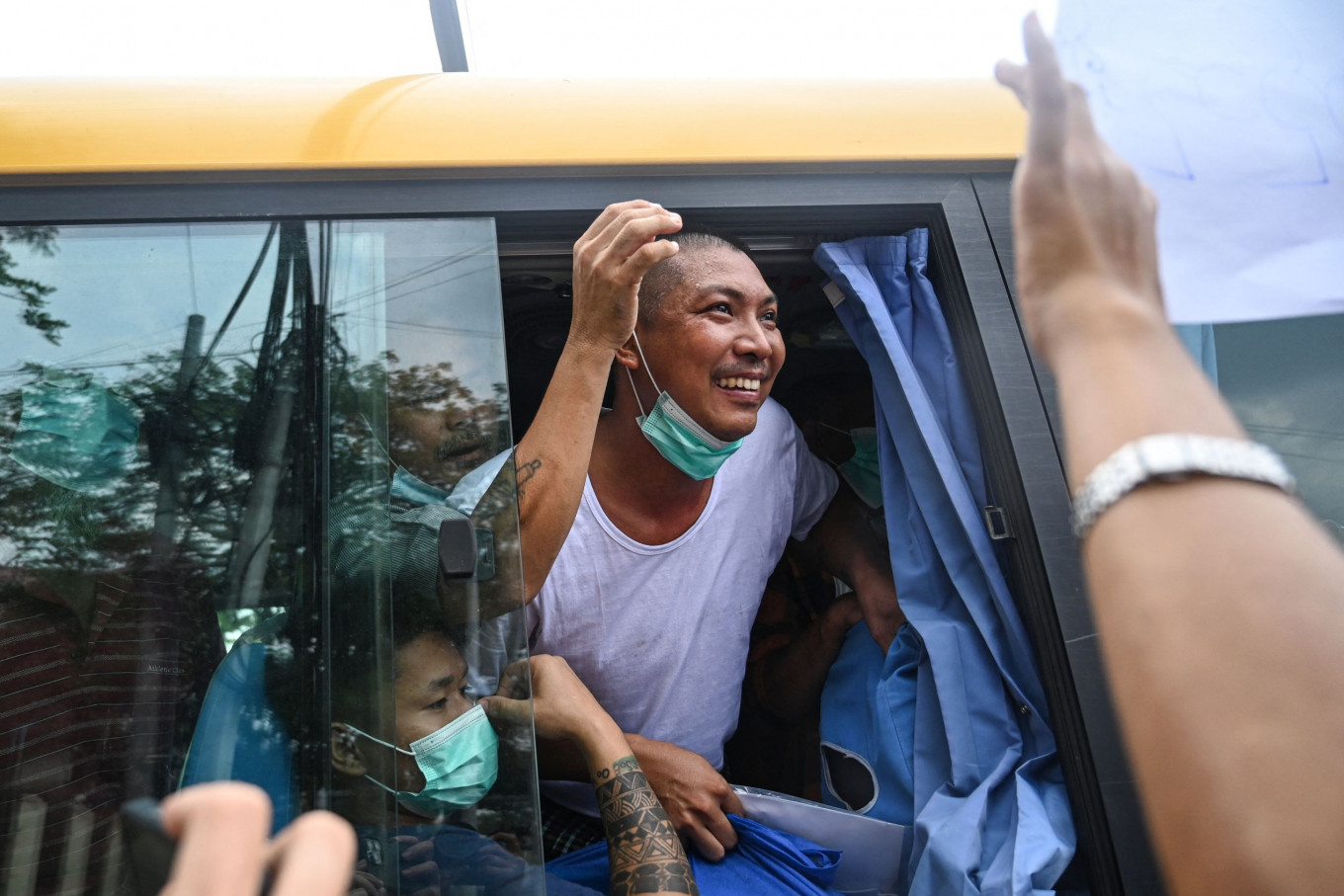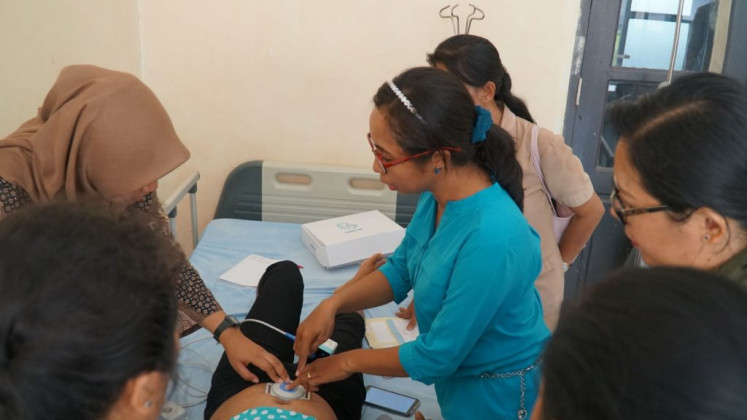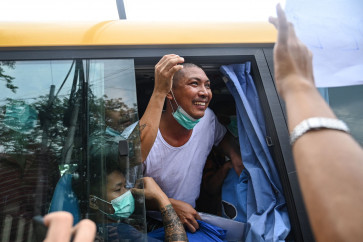Popular Reads
Top Results
Can't find what you're looking for?
View all search resultsPopular Reads
Top Results
Can't find what you're looking for?
View all search resultsSeeking a sustainable ASEAN engagement with Myanmar
ASEAN needs to go beyond the policy of "quiet diplomacy" it has followed to date and shift to a more transparent engagement process based on the three pillars of institution, vision and coordination to push the needle on the Myanmar crisis.
Change text size
Gift Premium Articles
to Anyone
I
ndonesia’s 2023 ASEAN chairmanship drew to a close with the conclusion of the 43rd ASEAN Summit last week. The year had started with high hopes for a solution to the Myanmar crisis, with Indonesia calling for the “return of democracy” in the military-controlled state that led to the adoption of the Five-Point Consensus (5PC) in 2021.
By and large, there is no significant progress on the ground today. The military junta controls urban centers despite sporadic attacks by resistance forces. Ethnic armed organizations still hold or have influence in large swaths of the countryside. The Peoples’ Defense Forces carry out daily attacks on the Myanmar military’s columns and outposts, and battle casualties are accumulating. And the misery of displaced persons, including the Rohingya people, continues unabated across the country.
Nonetheless, ASEAN leaders issued a stronger statement at the summit, facilitated by a less contentious process this time. They called on the Myanmar military in particular to deescalate and cease its attacks against civilians. The leaders also agreed to create an informal consultation mechanism among the previous, current and next chairs (known as the ‘troika’).
They further decided that the Philippines would be the 2026 ASEAN chair instead of Myanmar, while maintaining the “disinvitation” of Myanmar from future summits and foreign ministers’ meetings. Perhaps most importantly, ASEAN leaders called for a “sustainable” approach to implementing the 5PC and engaging all Myanmar’s stakeholders in the process.
Indonesia’s leadership this year over the Myanmar crisis must not be understated. Not only did it sustain ASEAN’s position regarding “nonpolitical representatives” to the summit and foreign ministers’ meeting, Jakarta also created a separate Office of the ASEAN Special Envoy to Myanmar to ensure that its regular and expansive engagement with more stakeholders could continue without straining the Indonesian foreign minister. Foreign Minister Retno LP Marsudi also attempted to convene all special envoys to Myanmar from different countries and organizations, including China and the United Nations, in an effort to promote better coordination in support of the 5PC.
Crucially, Indonesia spoke to various leaders of Myanmar’s ethnic groups as well as stakeholders through “quiet diplomacy”, or informal and discreet conversations led by the head of the special envoy’s office, I Gede Ngurah Swajaya. This set an important precedent that these ethnic groups are key stakeholders in any process moving forward, and that the special envoy is not bound to meet only those parties approved by the State Administration Council (SAC).
By bringing Myanmar’s stakeholders to Indonesia for these conversations, Jakarta also created a safe space outside Myanmar where they could gather and talk to one another. And by patiently listening to the views of diverse stakeholders, Indonesia also increased their confidence that ASEAN could play a role in transforming the crisis.



















